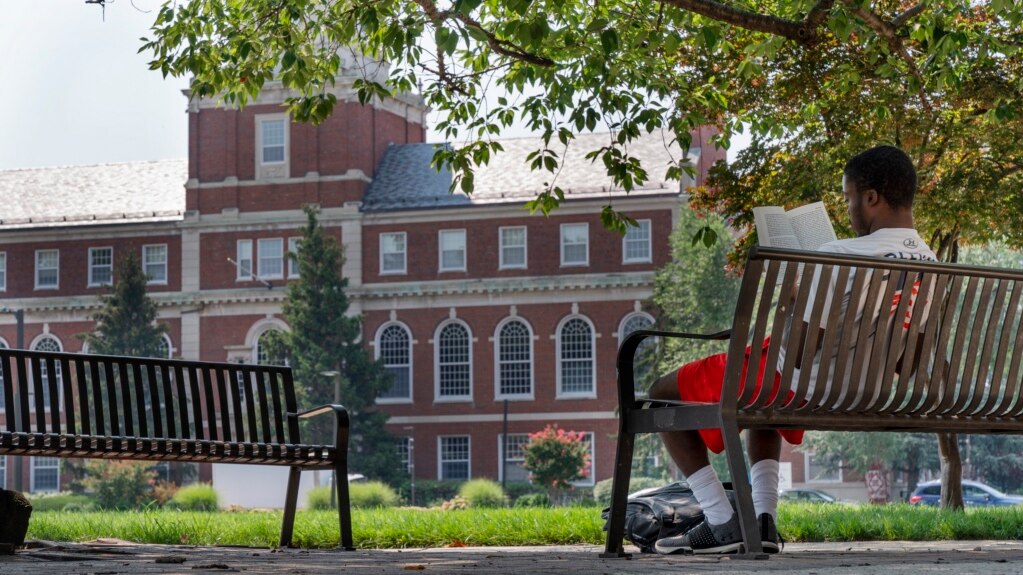A recent report shows that the number of international students studying in the United States has returned to pre-pandemic levels.
Over 1 million international students attended American colleges and universities in the 2022-2023 school year. Last year’s numbers nearly reached the record of 2018.
There are fewer Chinese students, but the largest-ever number of students from India made up the difference. Almost 269,000 Indian students came to study in the U.S. during the 2022-2023 school year.
The number of Chinese students dropped to 290,000 -- about 90,000 fewer than before the COVID-19 pandemic.
Many university leaders are celebrating the growth in students. Costas Chassapis is one of them. He is the Senior Vice Provost for Graduate Education at Stevens Institute of Technology in the city of Hoboken, New Jersey.
Chassapis said many university administrators are “euphoric” over the growth of students from India. But he warned that it will not last forever.
“The idea that these applications will keep on going up, I have a concern about. That’s the euphoria. But I don’t have a concern about the continued reasonable increase.”
Experts say the increase is partly the result of changes made last year by President Joe Biden’s administration to permit more students to qualify for work after graduating.
Biden’s government increased the number of study programs that qualify for what is known as STEM OPT. STEM stands for science, technology, engineering and math. OPT is optional practical training. Students who complete a study program at an American university can stay in the U.S. and work for one year while on their student visa. However, STEM students are permitted to stay in the U.S. for two extra years of OPT.
Three years of OPT, Chassapis said, “makes them highly qualified working professionas by the time they are done.”
A report from the U.S. State Department and the nonprofit Institute of International Education showed that many students came to the U.S. for math and computer science graduate programs.
Those two subjects saw a 20 percent increase compared to 2021-2022. More than half of all international students in the U.S. are working on degrees in math, science, engineering or business.
Chassapis said international students like Stevens because of its STEM study programs and its location – across the Hudson River from New York City. He added that well over 90 percent of the school’s STEM graduates find work in their field.
A reduction in American students
The increase in international students comes as the number of American students attending college has dropped. A study from the National Student Clearinghouse noted the number of first-year American students decreased by 3.6 percent this year.
In search of a different cultural experience
Twenty-nine-year-old Dhruva Rathod of India is a working on a graduate degree in human-computer interaction at DePaul University in Chicago.
Rathod said he is in a group studying how to make digital, three-dimensional images called holograms more interactive with humans.
Rathod is from Hyderabad in southern India. He said he came to the United States because India only has space for 50 students each year in the same kind of study program. In the U.S., he estimated, there are 300 to 400 openings for graduate students.
Rathod said he considered trying to go to school in the U.S. as long ago as 2015, but he had to give up on the idea because it was too costly. He had degrees in mechanical engineering and industrial design. But he added: “in the back of my mind there was always an option that I should be going for a program abroad in the U.S. or Europe.”
Rathod said he not only wanted to get into a high-quality study program, but he was looking for a “different cultural experience.” He wanted to interact with people from all over the world while in the U.S.
It took him about two years to pass tests, send applications, be accepted, and receive a study permit, or visa.
Once he arrived in Chicago, he said he was happy with the mix of people. The only thing he does not like is the cold winter weather. “The state I come from,” he said, “is kind of tropical and has sunny and warm weather.”
If he stays in the U.S. after his study program, he will look for work in warmer places like California or Texas. But he considers his experience in Chicago as “an experiment with life.”
International students make up 5.6 percent of U.S. college students. University leaders say they support the kind of “cultural experience” Rathod talked about.
In addition, many international students pay the full cost of college, which, universities say, lowers the cost of college for American students.
Rathod said it costs over $31,000 for each year of school at DePaul, including his living expenses. That is after about $6,000 in financial aid.
Chassapis in New Jersey said he knows the cost of attending school in the U.S. is a concern for international students. The number of applications to Stevens, though, keeps going up. In 2017, there were 7,000 graduate applications and last year the number was over 15,000.
Chassapis said pent-up demand is one reason for the increase last year. He noted that some countries, such as Australia, did not re-open for international students as quickly as the U.S. He called the increase “inflation” that will moderate soon.
But Stevens is working to remain popular. The school wants to make itself known in places like Indonesia and Vietnam.
It is a way “of minimizing the risk of depending on one country, which would be India,” Chassapis said.
Vietnam sends the fifth-most students to the U.S., with nearly 22,000. Indonesia sends about 8,000.
I’m Dan Friedell. And I'm Dorothy Gundy.

